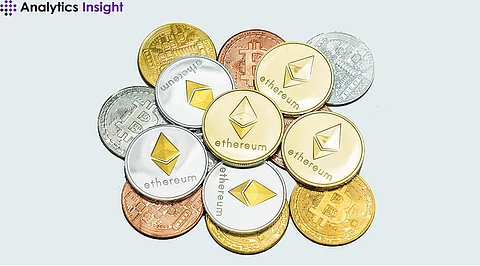

Stripe confirms global banks are actively exploring stablecoin payment integrations.
Trump Media raises $2.44B to establish a Bitcoin treasury and expand corporate operations.
Bank of Italy governor says only a digital euro can manage systemic risks from crypto growth.
Today's global cryptocurrency markets experienced significant developments, with Stripe enhancing talks on stablecoins with banks, Trump Media concluding a multibillion-dollar Bitcoin acquisition, and the governor of Italy’s central bank reaffirming support for a digital euro amid increasing crypto-related risks. These updates reflect the emerging patterns in the relationship between traditional finance and digital assets across various areas.
Stripe is in talks with global banks about integrating stablecoins into their financial services, indicating a growing institutional acceptance. The payments leader has recently launched stablecoin-based accounts in 100 countries. Stripe's co-founder and president, John Collison, confirmed that banks are now reviewing the use of stablecoins in payment services.
In an interview with Bloomberg News on May 30, Collison noted that banks are not dismissing stablecoins; rather, they are evaluating ways to incorporate them into modernizing current payment systems. He said that today's cross-border payment methods are still slow and costly, while stablecoins offer the potential for almost instantaneous settlements at considerably reduced fees.
Stripe views stablecoins as a crucial component of future payment volumes. Collison stated that much of Stripe's upcoming growth will involve transactions enabled by stablecoins. The company believes that stablecoins will challenge traditional foreign exchange models, primarily by reducing profit margins for legacy banking institutions.
While Stripe supports the use of stablecoins globally, regulatory uncertainty remains a concern. Collison warned that jurisdictions slow to introduce stablecoin regulations could risk losing fintech business to more accommodating regions. He pointed to the EU’s MiCA regulation, now in effect, as a clear framework, while noting that the UK is still collecting feedback on its own stablecoin rules.
Trump Media and Technology Group (TMTG) announced it had closed a $2.44 billion private placement, with plans to establish a Bitcoin treasury. The company raised $1.44 billion through common stock and $1 billion through convertible senior notes due 2028. Approximately $2.32 billion in net proceeds will support the company’s Bitcoin acquisition and general operations.
According to CEO Devin Nunes, the company’s move reflects a strategic push to expand financial assets and adopt Bitcoin as part of its treasury strategy. Trump Media, which operates Truth Social and the fintech brand Truth.Fi, now holds over $3 billion in liquid assets. This includes $759 million in cash and equivalents from Q1 2025.
The firm described the initiative as one of the largest Bitcoin treasury deals among publicly traded U.S. companies. It aims to join the ranks of major Bitcoin-holding corporations, following a trend set by firms like MicroStrategy. Despite the announcement, Trump Media’s stock (DJT) dropped 10% on the news, but recovered 3.3% later in the week.
Bank of Italy Governor Fabio Panetta stated that the digital euro would be crucial in mitigating the systemic risks posed by cryptocurrencies. In the bank’s annual report, released on May 30, Panetta argued that regulatory measures alone cannot control the evolving cryptocurrency sector. He underscored the need for a digital euro to provide secure, central bank-backed digital payments.
Panetta noted that the EU’s Markets in Crypto-Assets (MiCA) regulation has yet to stimulate stablecoin activity in Italy. Although MiCA has encouraged reporting and licensing intentions, few electronic money tokens (EMTs) have launched in the region.
Panetta voiced worries about the existing global regulatory gap, cautioning that EU investors might remain vulnerable to risks from overseas crypto platforms. He advocated for enhanced international collaboration to establish consistent protections. He also pointed out that the digital euro is needed to give people the stability, trust, and access to payments required in today’s digital payment landscape.
Also Read: Google Tightens Crypto Ad Rules in Europe with MiCA Compliance
